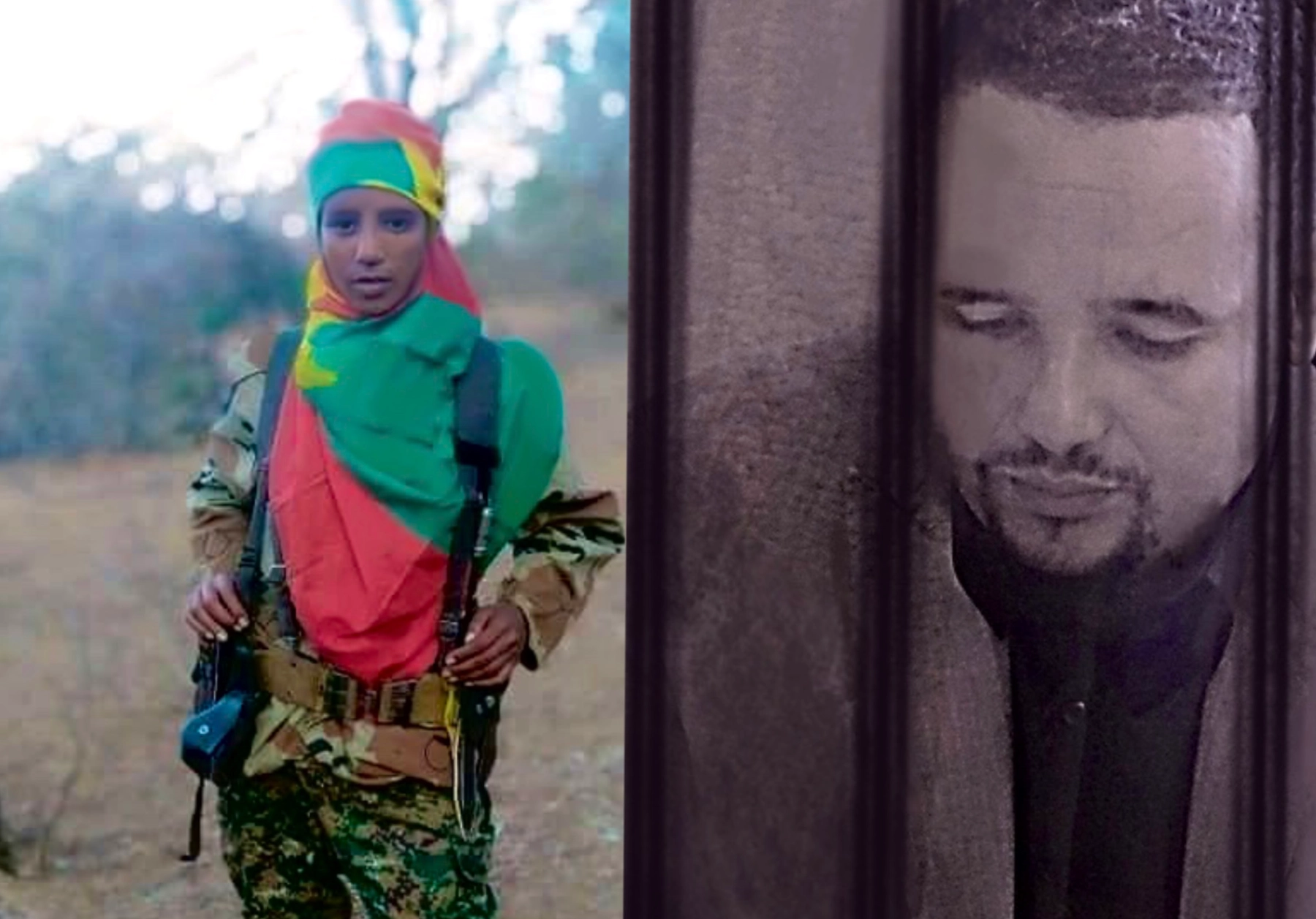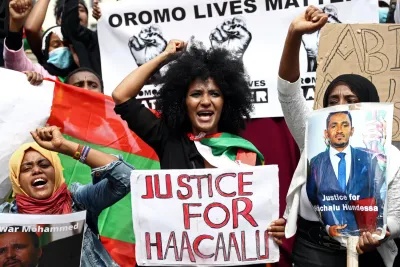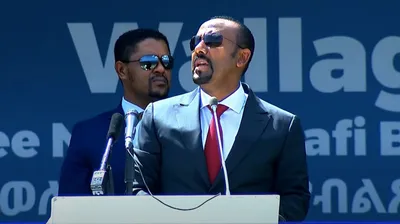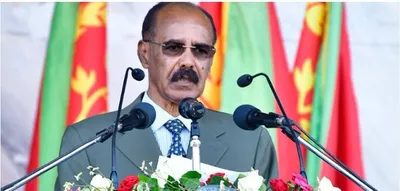Liberation by any means necessary: in defense of the Oromo’s right to an armed struggle.

No people, group, or nation has ever successfully liberated themselves from colonial rule or from a systematically imposed ideology, governance process, identity or military without some kind of armed movement. The Oromo, East Africa’s largest indigenous nation, have engaged in a consistent and evolving armed resistance against Abbiysinnian imperial rulers for over 15 decades. In this piece, I argue that the armed guerilla movement of the Oromo freedom struggle is a quintessential part of the overall task of liberation for two key reasons.
Firstly, official and unofficial Ethiopian military forces are at the frontlines of the assault against Oromo people of all walks of life. The federal Ethiopian body politic can not be separated from these operations that terrorise communities. Thus, this body politic can not be brought to a ceasefire via discourse. In the process of negotiating military accountability or retraction, Oromo people will continue to suffer at the hands of these terrorist operations until (and if) these negotiations are successful and honoured. Such a compromise can no longer be entertained.
Secondly, the Oromo are still living under the rule of their initial colonisers. The reality that Ethiopia is, in and of itself, a colonial project is difficult to comprehend because of how strongly the narrative that “Ethiopia has never been colonised” is interwoven with the broader story of Africa’s relationship with colonialism. Yet, there has not been a single moment in Ethiopia’s imperial or federal history where the genuine representation of the Oromo mass, among political processes and systems, has existed. Thus, the Oromo are not fighting to reform a state project that they entered into on goodwill and joint democratic ambition. The Oromo are struggling to remove colonial systems from ruling over its lands and people.
If this is how we frame the state’s relationship to the Oromo mass and its lands, the response that best encompasses a respect for human rights and dignities is a decolonial, liberatory framework. There is not a place in the world where such decolonial and liberatory ends were reached successfully without an armed faction.
To convince somebody that what they are doing is wrong and to create binding agreements that rectify wrongs, two or more parties must share an understanding of what constitutes right and wrong. If this common understanding is not pre-existing or can not be built, and one or more parties continue to justify actions that cause harm to another party or parties, especially if these actions bring forth some form of gain for one side, using discourse and dialogue as a means to halt injustices being perpetuated can not succeed.
Promoting discourse as a means to secure sustaining peace amongst a world order that recognises nation-states have the right to use their military internally as they see fit, may seem a noble battle, but if the state is able to militarise against you at will and upon whim, it is not a battle that one is likely to win. When a state insists its militarisation against citizens is just, dialogues prove even more ineffective in a context where no effective international mechanism exists to prevent the misuse of domestic militarisation. Furthermore, the right to domestic militarisation, customarily speaking, is inalienable when a given country’s relationship to the world’s more powerful nations are strategic and/or necessary. For example, Ethiopia’s strategic importance to the US gives it increased space to successfully promote narratives that minimise the impact of domestic militarisation, and because it’s also within the culture of the US military to appoint itself jurisdiction to terrorise the vulnerable within its borders and beyond, the Ethiopian state will be heard in good will when it justifies the presence of its military across Oromo, despite the operations of this military being entirely terrorist in character.
Where does this leave a nation like the Oromo? In the last two months alone, Human Rights Watch, Ethiopian Human Rights Coalition and Amnesty International have documented evidence of the Ethiopian military arbitrarily killing, arresting, injuring, and intentionally dehumanising women, children/the young, elderly, leaders and other ordinary citizens across Oromia. These are abuses documented since the government-sanctioned assassination of popular Oromo singer and activist Haacaaluu Hundeessaa. During the two years of failed reform by Abiy Ahmed, violence in Western and Southern Oromia, and across other parts of the country where communities seeking rights to self-determination exist, has also been documented.
The previous 27 years under Ethiopian People’s Revolutionary Demoractic Front (EPRDF), and before that, the leadership of Mengistu Halimariam’s “DERG” regime, Haile Sellasei, Menelik II, and Tewdors have all centered terrorist military operations when engaging the Oromo and other nations and nationalities that are now living within the borders of Ethiopia. What we have to consider about the Ethiopian state’s military operations in Oromia is that, in the eyes of Ethiopia, these operations are not considered to be in breach of moral conduct, as oversights of existing guidelines or as isolated incidents that require accountability. These abuses are part of the character of the Ethiopian state. It is normalized as procedural when “governing” Oromo lands and people.
Cause for increased alarm are the unofficial and ad hoc operations of this military. These operations include, but are not limited too: the assassination of high profile figures like Haacaaluu Hundessaa, Gen. Seare Mekonnen, the pre-meditated instigation of violence in Oromo towns that Oromo youth and leaders are currently being crucified for and more. It is an affront to human dignity to expect people to endure this kind of abuse without defending themselves and their communities.
Dialogue becomes an option in a context like Ethiopia when the playing field is equalized. In a country that deploys military capacity like it were hot air balloons, the only way to equalize this playing field and put an end to the daily killings and arrests across Oromia at the hands of military, is to militarize right back, against the state. Emphasis: not its civilian population, but the state itself. We may begin to understand the Oromo’s right to an armed movement from the vantage point of self-defence – but we can go on to define the grounds of this nation’s right to further activate a fully-fledged armed movement to achieve its liberation from Ethiopia completely.
Collectively, we imagine that the times for armed movements seeking genuine liberation of lands and people, particularly on the African continent, ended with the decolonial movement of the 20th century. Today, we celebrate decolonial movements, all of which involved armed factions, as part of a nation and people’s sense of collective honor. And yet, it’s perceived as lacking intellectual rigor, a commitment to human rights and human values, to think that today, genuine liberation movements seeking this same decolonisation have the right, even the need, to an armed faction.
It’s even harder to imagine this need when, with Ethiopia, we are still working to debunk the myth that although Ethiopia successfully resisted Italian Imperialism (with the support of the British), it, in collaboration with the British and French, was created by Abyssinian imperial rulers who came from the northern region of modern day Ethiopia and violently colonised people groups in the South, East and West of the horn of Africa region. For the Oromo and other people groups, colonialism never ended.
The Oromo Liberation Front (OLF) and its armed faction, the Oromo Liberation Army (OLA), who fought alongside other armed groups to overthrow the DERG, did not disarm after the forming of EPRDF in 1991 – the ruling coalition of parties representing different nations and nationalities. The formation of EPRDF was, on paper, supposed to mark Ethiopia’s transition from imperial and dictatorial rulers, to the path of democratic, pluralistic rule. The OLF did not disarm because the major influencer over this coalition, the TPLF, had no interest in leaving Oromia to be genuinely governed by its people and soon after the TPLF assumed power, Oromos, both OLF affiliated and not, were heralded into prisons.
One of the defining features of the initial reforms that swept Ethiopia when Abiy Ahmed was appointed to lead a transitory government towards an election, was the invitation to the OLF and its armed faction, the OLA, to disarm and join the political space as a genuine competitor, or to join the country’s military. This saw many (not all) of those who had been fighting in the guerilla movement, disarm. There was no integration plan for these ex-combatants and it is widely believed that many soldiers of varying rank were poisoned and killed during the first weeks of return. In light of the intensification of abuse that the Oromo have experienced under the Abiy government, the number of those taking up arms as part of continued guerilla action has increased exponentially.
It is ironic that it is under leadership that appeared to be one of the most promising steps towards genuine democracy in Ethiopia, that we are coming to full terms with the fact that the Oromo are struggling against the same system of exploitation and subjugation that began an assault against the Oromo and others in the late 17th century. Irony or not, what has crystallised in this time is that an armed movement is not only the right of the Oromo on grounds of self-defense, but it is also the right of the Oromo on grounds that, if Oromo people are to live with dignity and in safety, Oromia must become free of the colonial administrations that currently attempt to assert governance over it. No people have ever achieved liberation from an empire without an armed faction. Although we are not in the thick of armed decolonial insurgencies toppling colonial administrations across the African continent, an armed movement is still an unalienable right of the Oromo in the context of Ethiopia and it must be recognised as such.
There are two fears that appear when we talk about securing statehood with armed force. Firstly, war is ugly. Life will be lost. Secondly, transitioning a state that is captured militarily into a genuine democracy can be a precarious process. In regards to the casualties of war, there is no way to make this less problematic. Not even the fact that a war is already underway in Oromia, one-sided though it may be, for the most part. However, there is a great difference between the operations of guerilla warfare and of state military. The guerilla movement of the Oromo is made up of people who, upon experiencing and witnessing the state of their communities and nation at large, give up their entire lives to enter the struggle. The goal of this movement is to attack and destabilize the military and, where possible, protect, liberate and empower communities whilst also keeping clandestine and on the move. This article isn’t intended to analyze the practises of any current guerilla movements associated with the Oromo cause. That is a wider conversation and its audience far more intimate than a public platform like this can currently hold. Overall, we can consider guerilla warfare as the most human, harm reduction focused style of war and it is usually influenced by the culture of the people the movement is made up of. With this in mind, we must imagine that it is entirely possible for the Oromo to engage an effective, successful armed movement whilst adhering to principles of Safuu (ethic) and Namummaa (a humanness or multi-dimensional interconnectedness of all beings).
Moreover, there have been dictatorships born of genuine liberation movements. We do not need to look further than the DERG in Ethiopia to see this. I believe that a multi-dimensional transitionary process that facilitates a grassroots-up nation-building project can be the direction that the Oromo nation takes upon securing its borders militarily. Of course, my belief in this idea does not guarantee its manifestation, but my observation of the Oromo as a highly collectivist and collaborative society, who, despite the challenge any people group face in keeping the human desire for unending power accountable and at bay, I believe the Oromo have the capacity to employ old wisdom’s and contemporary practises to build a democracy informed by the Oromo worldview. It will take all factions of Oromo society proactively engaging the transition process from now and calling for consistent accountability to ensure that oppressive realities are not further created and perpetuated by any group or individual.
When people insist that you belong in the hands of subhuman treatment and use expanded military operations to enforce this treatment, I am perplexed that the expectation would be any less than that of self-defense. Although our neo-liberal world order makes it difficult for us to imagine that people should be able to defend themselves, their families, and their communities – to be able to protect yourself is a human right.
The risk of anarchy is a question, but I think it is one that should be put to militarised states before it is used to keep communities dying and in prison at the hands of said states. The Oromo have the right to protect themselves and furthermore, have the right to, just like so much of the world did, free themselves from colonial rule. The armed movement of the Oromo has never fully subsided because the colonial nature of Ethiopia, albeit glimpses that the empire might transform into a democracy, has endured. Oromia has the right, even by standards enshrined in international human rights instruments, to be free of alien and imposed rule. The UN might not sanction the use of armed forces to achieve this freedom, but the Oromo can not afford to be as complicit as the UN in addressing the current conditions in Oromia.
As for the challenges and complexities of state-building that begins with armed conflict and the moral questions around war altogether – they are more than what I have addressed in this piece and should not be sidelined or minimised. For what it is worth, I believe that the Oromo can (and have) engaged in warfare that is mostly free of unnecessary harm being inflicted on human beings and community infrastructure. This obligation is enshrined in Oromo code of conduct. If we start to imagine and collaborate upon a nation-building project that is people-focused, once the necessary work of securing our borders is complete, it will be the responsibility of the 50+ million Oromos and those that choose to call Oromia home from that point onward, to engage in a holistic and multi-faceted process of creating a Oromia anew.
We need your support
We trust you found something of value in this article. If so, we kindly ask you to consider helping Curate Oromia continue its work.
If you believe in the importance of independent voices and honest reporting, we invite you to support our efforts through our GoFundMe campaign.
Every contribution, however small, goes directly to our writers and the expansion of our reach.
Thank you for your support.



